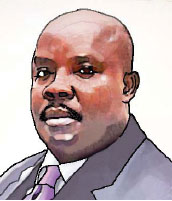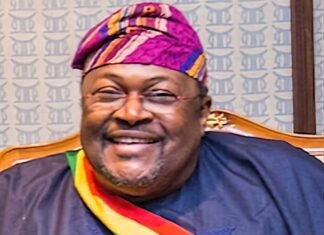By Emeka Alex Duru
(08054103327)
Whatever marginal gains Nigeria may have recorded in her relations with other countries lately, have been drastically reduced by some recent developments that have laid bare the fault lines of her foreign policy initiatives. Among these ugly occurrences, five stand out sorely. These are the regular assaults on Nigerians in South Africa; humiliation of Senator Ike Ekweremadu in Germany; publication of suspected 77 Nigerian fraudsters by the American Federal Bureau of Investigation (FBI); the Process and Industrial Development (P&ID) case and the US Visa Fee controversy.
The incessant molestation of Nigerians living in South Africa, is a running story. Nigerians living in South Africa, have become objects of attack and in some cases, extra-judicial killing. Between 2015 and 2017, statistics indicated that 116 Nigerians had been killed in South Africa through extrajudicial means. The trend has increased, ever since. Curiously, seven in 10 of the killings were carried out by the Police. Another case of killing a Nigerian in the country, happened during the week. As usual, not much is being done by the Federal Government, except the routine feeble condemnation of the dastardly exercise.
While that trended, America’s FBI released names of 77 Nigerians accused of engaging in internet fraud and other criminal activities. Before then, was the humiliation of the former Deputy Senate President, Ike Ekweremadu in Nuremberg, Germany by suspected members of the proscribed Indigenous Peoples of Biafra (IPOB), residing in the country. There is of course the raging issue of a $9 Billion judgement debt entered against Nigeria over a failed contract deal with a British company, P&ID. The latest, is the Visa fee controversy between the country and the US.
All of these amount to a huge loss to Nigeria’s reputation and standing in international politics. By convenience of classification, the Ekweremadu incident and maltreatment of Nigerians in South Africa, fall into the same category. That of the P&ID case and the American Visa issue, are related. The case of the 77 suspected fraudsters stands in between the two. It is an issue of outright criminality. All however paint the picture of Nigeria as a dysfunctional society.
Many have condemned the treatment handed down on Ekweremadu by the IPOB operatives, particularly in a foreign country. They regard it as a negative portrayal of Nigeria and the value it places on its leaders. For the more traditionally inclined, it is a poor advertisement of the rich culture of the Igbo and Nigeria that emphasizes respect for people in authority. Whatever may be the interpretation, Nigeria’s image is on the canvas. So also is the treatment regularly extended to Nigerians in South Africa. They are manifestations of failed leadership.
Add the two scenarios to P&ID case and the increase in the visa fee on Nigerians, you will understand where Nigeria currently stands in the estimation of other countries. The P&ID case is more pathetic. Nigeria entered into a contract with the company in 2010 to build a gas processing plant in Calabar, Cross River State, on agreed terms. But the deal collapsed midway because Nigeria did not meet its end of the bargain. In 2015, the country, opted for an out of court settlement for a tune of $800 million. But the succeeding President Muhammadu Buhari administration, spurned the process and did not do the necessary follow-ups, hence the cumulative judgement debt of &9Billion awarded against the country by a British court. Another clear case of misstep in foreign policy engagement.
Then, the American visa issue. For over one year America had raised issues with Nigeria over the relative high visa fee charged her nationals seeking Nigerian visa. When the plea was not being attended to, the country invoked the reciprocity principle in her relations with other countries and hiked her visa fee on Nigerians from N50,000 to N99,000. Faced with the ugly situation, Nigeria announced a reduction in her visa fee to Americans. These are manifestations of the impulsive foreign policy drives of the country. For quite some time, Nigeria’s foreign policy has been in a state of flux and largely dependent on the mood of a particular leader or administration. Consequently, it is difficult to comprehend the country’s foreign policy, making it look as though the country had none and its foreign minister mainly existing to fulfil the virtue of filling up an available cabinet position.
Incidentally, Section 19 of the 1999 Constitution actually defines the country’s foreign policy objectives thus: “promotion and protection of national interest; promotion of African integration and support of African unity; promotion of international cooperation for consolidation of universal peace and mutual respect among all nations and elimination in all its manifestation; respect for international law and treaty obligations as well as the seeking of settlement of international disputes by negotiation, mediation, conciliation, arbitration and adjudication and promotion of a just world economic order.”
Curiously, despite these fine lines of the basic law, the present administration barely knows what to do with the country’s foreign policy. It is the national interest of a country that defines its foreign policy. National interest, refers to some ideal set of purposes which a nation seeks to achieve in the conduct of its foreign relations. This is where the problem arises.
In going into the P&ID contract in the first instance, what did Nigeria stand to gain? This question finds expression, particularly against the backdrop of the remarks by the Justice Minister, Abubakar Malami, that the agreement was entered into by the company and the Ministry of Petroleum which does not produce gas. But the second and most important leg of the question, is why the country shunned the out of court settlement option, when it realized that it had failed in her side of the bargain. This is where the obstinacy and self-righteous posture of the Buhari administration, rankles. It is a government that seeks to sell the impression of a saving culture when what it loses outweighs what it gains.
It is the same tardiness that underlined the refusal to reduce visa fees on Americans even after their home country had intervened. This, frankly, beats logic. On one hand, this is an administration that says it is wooing foreign investors in the face of a comatose economy but on the other hand, scaring them with unreasonable administrative bottleneck. In such instances, the result is always, a huge loss.
This is where Nigeria is, currently. It did not hit the despicable point by accident. This is what happens when formulation and implementation of a country’s foreign policy objectives are managed by people whose actions are driven by political considerations rather than the interest of the country. And we are paying for it.













